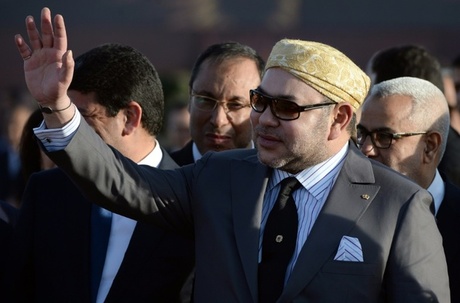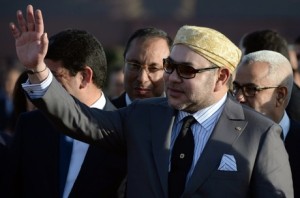NEWS24
AFP
Morocco is to host an African summit later on Wednesday as the kingdom presses a bid to rejoin the continental bloc 32 years after walking out in protest at its position on the Western Sahara.
At least 30 leaders are due to take part, including those of English-speaking states like Kenya and Nigeria as well as Morocco’s traditional allies among French-speaking West African nations.
The summit is being held on the sidelines of annual climate change talks and the calls of African leaders for more funding from developed nations to cut fossil fuel emissions and take contingency measures will also loom large.
It will be an opportunity for African leaders to “co-ordinate their positions and speak with one voice to defend them”, a senior Moroccan diplomat told AFP.
“Developed countries must shoulder their historical responsibility for emissions,” Djiboutian President Ismail Omar Guelleh told the climate change talks on Tuesday.
The UN, too, called for more money, especially for “adaptation” – shoring up defences against global warming’s effects.
This could mean building dykes or elevating homes as protection against rising seas, improving weather warning systems and growing climate change-resistant crops.
French President Francois Hollande is due to address the African leaders.
Controversially, they include Sudanese President Omar al-Bashir, who is wanted by the International Criminal Court on charges of war crimes and genocide during the 13-year-old conflict in Darfur.
He has always denied the charges.
ICC boycott grows
The summit comes amid growing opposition to the ICC among African leaders, who accuse the court of prosecuting alleged crimes in Africa while ignoring those elsewhere in the world.
Burundi, South Africa and the Gambia have all pulled out of the court’s founding treaty, the Rome statute, in recent weeks.
Kenya, Namibia and Uganda have indicated they may follow suit.
Hosting the summit is a diplomatic coup for Morocco as it seeks to reassert its influence in Africa.
In July, the kingdom announced it wanted to join the African Union and in September it lodged a formal application.
King Mohamed VI has since toured east Africa in a bid to woo support and after the Marrakesh talks he is due to visit Addis Ababa where the AU is based.
Morocco pulled out of what was then called the Organisation of African Unity in 1984 in protest at its admission of the Sahrawi Arab Democratic Republic declared by the pro-independence Polisario Front in the Western Sahara.
The move came at the height of the armed conflict between the Polisario and Morocco over the former Spanish colony.
A UN-supervised ceasefire has been in effect since 1991 but a quarter of a century of efforts for a lasting peace have led nowhere.
Morocco controls all the main towns with the Polisario confined to a narrow strip in the desert interior. Tens of thousands of Sahrawi refugees still live in camps in neighbouring Algeria.
Algeria has long backed the Polisario and Morocco’s bid for AU membership has set off what is likely to be dogged diplomatic battle for influence between the North African rivals.








